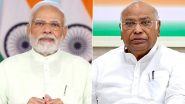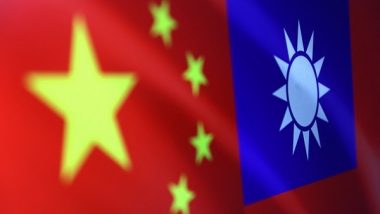Taipei [Taiwan], December 27 (ANI): On December 23, the Central Military Commission of the Communist Party of China officially promoted Chen Hui to the rank of General and appointed him as the new Political Commissar of the Army, Voice of America reported.
This move was made during a high-profile ceremony held at the Bayi Building in Beijing, presided over by Xi Jinping, General Secretary of the Communist Party of China and Chairman of the Central Military Commission. However, the absence of four senior generals, including the former Army Political Commissar Qin Shutong, has sparked widespread speculation regarding internal power struggles within the military and political circles of the Communist Party.
The personnel reshuffle has drawn significant attention, especially due to the collective absence of four prominent generals--Qin Shutong, Army Commander Li Qiaoming, Navy Political Commissar Yuan Huazhi, and Armed Police Commander Wang Chunning--during the promotion ceremony. This sudden disappearance has led many experts to speculate that the generals may have been removed due to their involvement in a corruption investigation, particularly one tied to Miao Hua, the former Director of the Political Work Department of the Central Military Commission. Miao Hua himself has been under scrutiny for alleged corruption, and military observers suggest that the generals' ties to him may have led to their abrupt removal from office.
Qin Shutong, in particular, was seen as a key figure within the military, having served as the Army's Political Commissar for several years. His sudden dismissal, along with the absence of other senior officials, raises questions about the extent of the internal political turmoil within the military and the Communist Party.
Analysts suggest that this move may reflect a deeper, ongoing anti-corruption purge spearheaded by Xi Jinping's administration. The corruption case involving Miao Hua has allegedly implicated several high-ranking officials in the military, and their removal could signify a broader effort to rid the armed forces of individuals perceived as corrupt or disloyal, reported Voice of America.
"Chen Hui's appointment, while a significant step in the restructuring of the Chinese military, also highlights the deeper tensions within the Communist Party. It may be seen as an attempt to consolidate Xi Jinping's power within the military," said Hu Yishan, a senior researcher at the Singapore Institute of International Affairs. "The reshuffling and potential purge are likely part of the long-standing anti-corruption campaign within the Chinese Communist Party, which has targeted both military and civilian officials."
The Central Military Commission's latest personnel changes come amid broader concerns about power struggles between different factions within the Communist Party. The removal of the four generals has fueled speculation that Xi Jinping may be asserting his control over the military, ensuring that loyalists are positioned in key roles to maintain his dominance. The appointment of Chen Hui, a former political commissar in the military aerospace force, to the high-ranking position of Army Political Commissar is seen as a move that strengthens Xi's grip on the military.
While the reshuffling may be interpreted as a sign of Xi's growing influence, some experts believe that the power dynamics within the Communist Party are still very much in flux. "Despite Xi Jinping's consolidation of power, internal factions and rivalries remain a significant factor in Chinese politics," said Zhang Jing, a senior researcher at the Chinese Strategic Society. "The absence of key figures in the military is indicative of the ongoing struggle for control over the direction of the armed forces and the party."
The ongoing tensions between Xi Jinping and other military leaders, such as Zhang Youxia, who is a vice chairman of the Central Military Commission, have been a source of intrigue for analysts. Some speculate that Xi's leadership style, marked by a concentration of power, has created friction with rival factions within the military and the Communist Party. "This round of personnel changes further underscores the delicate balance of power between Xi Jinping and the other forces within the military," said Zhang. "While Chen Hui's appointment may appear to be a victory for Xi, it's unclear whether it represents a decisive shift in power dynamics within the military."
The shift in leadership also raises questions about the future trajectory of the Chinese military and its role in China's foreign policy. Some analysts suggest that these internal struggles could have significant implications for China's military strategy, particularly in relation to sensitive issues such as Taiwan and the South China Sea. As tensions continue to mount in the region, the outcome of these internal power struggles could have far-reaching effects on China's approach to regional security, Voice of America reported.
"Power struggles within the Communist Party of China often have implications beyond domestic politics," said Hu Yishan. "The Chinese leadership may seek to deflect attention from internal struggles by ramping up external pressure, particularly in relation to Taiwan and other regional issues. The ongoing tension within the military could influence China's posture on the global stage." (ANI)
(This is an unedited and auto-generated story from Syndicated News feed, LatestLY Staff may not have modified or edited the content body)













 Quickly
Quickly
















